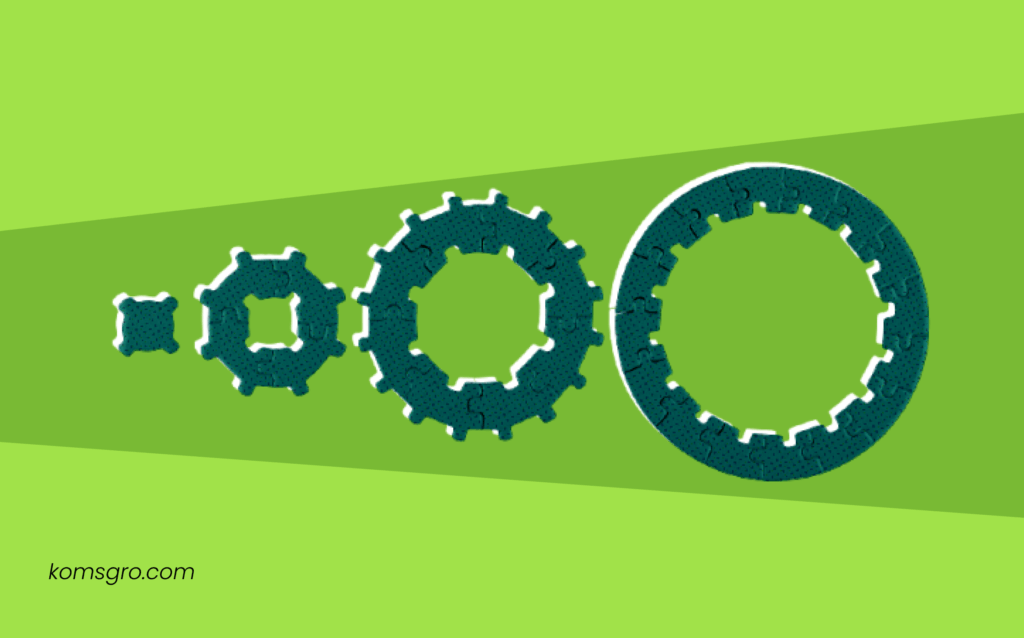In the ever-evolving world of digital marketing, understanding the nuances of SEO on page and off page is crucial for anyone looking to boost their online presence. These two pillars of search engine optimization work in tandem to improve your website’s visibility and ranking on search engine results pages (SERPs). While they share the same ultimate goal, on-page and off-page SEO employ distinct strategies and techniques that every savvy marketer should master. In this comparison guide between on-page vs off-page SEO, we’ll dive deep into the differences, importance, and implementation strategies for both, arming you with the knowledge to skyrocket your website’s performance.
Understanding SEO Types: On-Page vs Off-Page
Before we delve into the nitty-gritty of SEO techniques, let’s establish a clear understanding of what on-page and off-page SEO entail.
What is On-Page SEO?
On-page SEO refers to the optimization efforts you make directly on your website to improve its search engine rankings. These include:
• Content optimization
• HTML source code tweaks
• Image optimization
• Internal linking structure
Essentially, on-page SEO is all about making your website more appealing to both search engines and users.
What is Off-Page SEO?
Off-page SEO, on the other hand, involves actions taken outside of your website to impact your rankings within search engine results pages. This primarily includes:
• Building high-quality backlinks
• Social media marketing
• Influencer outreach
• Brand mentions
Off-page SEO is about increasing your site’s authority and credibility in the eyes of search engines.
The Importance of On-Page SEO
On-page SEO is the foundation of any successful SEO strategy. It’s where you have the most control over your website’s performance in search results.
Key On-Page SEO Techniques
1. Content Optimization
Quality content is king in the world of SEO. Ensure your content is:
• Relevant to your target audience
• Well-researched and informative
• Structured with proper headings (H1, H2, H3)
• Optimized for target keywords without keyword stuffing
2. Meta Tags Optimization
Meta tags provide search engines with information about your web pages. Focus on:
• Title tags: Include your primary keyword and keep it under 60 characters
• Meta descriptions: Write compelling, keyword-rich descriptions under 160 characters
• Header tags: Use H1 for your main title and H2, H3 for subheadings
3. URL Structure
Create clean, descriptive URLs that include your target keywords. For example:
www.yoursite.com/category/target-keyword
4. Image Optimization
Optimize your images by:
• Using descriptive file names
• Adding alt text with relevant keywords
• Compressing images for faster load times
5. Internal Linking
Create a solid internal linking structure to help search engines understand your site’s hierarchy and spread link equity.
The Power of Off-Page SEO
While on-page SEO lays the groundwork, off-page SEO is what truly sets you apart from the competition. It’s all about building your site’s authority and credibility.
Effective Off-Page SEO Strategies
1. Link Building
Quality backlinks are the backbone of off-page SEO. Focus on a precise strategy to build backlinks that includes:
• Guest posting on reputable sites
• Creating linkable assets (infographics, studies, tools)
• Broken link building
• Reaching out to influencers in your niche
2. Social Media Marketing
While social signals aren’t a direct ranking factor, they can indirectly boost your SEO by:
• Increasing brand awareness
• Driving traffic to your site
• Encouraging social shares and engagement
3. Brand Mentions
Unlinked brand mentions can still contribute to your off-page SEO. Monitor and encourage mentions of your brand across the web.
4. Local SEO
For businesses with a physical presence, local SEO is crucial. Optimize your Google My Business listing and encourage customer reviews.
On-Page vs Off-Page SEO: Which is More Important?
The truth is, both on-page and off-page SEO are equally important for a well-rounded SEO strategy. They work in synergy to boost your website’s visibility and authority.
The Symbiotic Relationship
Think of on-page SEO as the foundation of your house, while off-page SEO is the curb appeal. You need a solid structure (on-page) to support your efforts in making your site attractive to others (off-page).
Balancing Your SEO Efforts
While the exact balance may vary depending on your specific situation, a good rule of thumb is to:
• Start with on-page SEO to ensure your site is optimized and user-friendly
• Gradually build up your off-page SEO efforts as your on-page optimization improves
• Continuously monitor and adjust both strategies based on performance metrics
Implementing a Comprehensive SEO Strategy
Now that we understand the importance of both on-page and off-page SEO, let’s look at how to implement a comprehensive strategy.
Step 1: Conduct a Thorough SEO Audit
Begin by assessing your current SEO performance. Use tools like Ahrefs’ Site Audit or Google Search Console to identify areas for improvement.
Step 2: Optimize Your On-Page Elements
Focus on:
• Improving content quality and relevance
• Optimizing meta tags and headers
• Enhancing site speed and mobile-friendliness
• Implementing schema markup for rich snippets
Step 3: Develop a Content Strategy
Create a content calendar that includes:
• Keyword-focused blog posts
• Linkable assets (infographics, whitepapers, case studies)
• Video content for YouTube SEO
Step 4: Build Your Off-Page Presence
• Develop a link building strategy
• Engage in social media marketing
• Encourage customer reviews and testimonials
• Participate in industry forums and discussions
Step 5: Monitor and Adjust
Regularly track your SEO performance using tools like Google Analytics and adjust your strategy based on the data.
Common Mistakes to Avoid in SEO
As you implement your SEO strategy, be wary of these common pitfalls:
1. Neglecting mobile optimization: With mobile-first indexing, ensuring your site is mobile-friendly is crucial.
2. Ignoring site speed: Slow-loading pages can hurt both your user experience and SEO rankings.
3. Overoptimizing anchor text: Vary your anchor text to avoid penalties for over-optimization.
4. Buying low-quality links: Focus on earning high-quality, relevant backlinks instead.
5. Neglecting local SEO: If you have a physical location, don’t overlook the importance of local search optimization.
The Future of SEO: Emerging Trends
As we look ahead, several trends are shaping the future of SEO:
1. Voice Search Optimization: With the rise of voice assistants, optimizing for conversational queries is becoming increasingly important.
2. AI and Machine Learning: Google’s AI algorithm, RankBrain, is playing a larger role in search rankings. Focus on creating high-quality, relevant content that satisfies user intent.
3. Video SEO: As video content continues to dominate, optimizing your video content for search engines is crucial.
4. E-A-T (Expertise, Authoritativeness, Trustworthiness): Google is placing greater emphasis on E-A-T factors, especially for YMYL (Your Money or Your Life) topics.
5. Core Web Vitals: These page experience signals are becoming increasingly important ranking factors.
By staying ahead of these trends and maintaining a balanced approach to on-page and off-page SEO, you’ll be well-positioned to dominate the SERPs in the years to come. Remember, SEO is a marathon, not a sprint. Consistency and adaptability are key to long-term success in the ever-changing landscape of search engine optimization.


